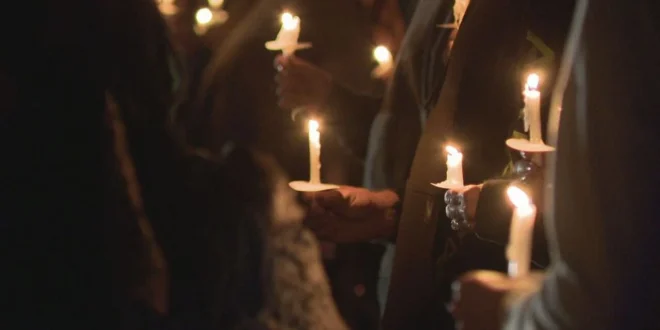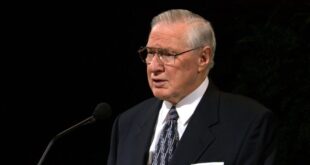Understanding Grief from an LDS Perspective
In recent days, from the shooting tied to Charlie Kirk’s event to the massacre at a Latter-day Saints chapel in Michigan, our feeds have filled with shock and grief. As disciples of Christ, we mourn with those that mourn while guarding against the easy slide into bitterness. Forgiveness in these moments is not naïveté—it is a wrestle. Some families are not ready, and that is holy ground. Others bear a hidden sorrow: the families of perpetrators, who must navigate love, loss, and stigma. In this complicated terrain, prayer and patient inclusion become acts of covenant.
The Complexity of Forgiveness
As members of the Church of Jesus Christ of Latter-day Saints, we hold forgiveness as central to our theology. However, it’s essential to recognize how complex emotions can be in the aftermath of such tragedies. I previously penned a piece examining the Amish community’s poignant response to a similar act of violence. Their ability to extend profound forgiveness stands as a remarkable testament to their faith.
Nonetheless, I would not presume that victims’ families have the same capacity for forgiveness. The pain of losing someone to an act of senseless violence can feel insurmountable. As we reflect on their heartache, we must acknowledge their individual journey of grappling with grief and the choices they face. Each family has its own relationship with healing, and it’s ultimately a sacred matter between them and God.
“For behold, it is not given that one man should be in bondage to the will of another.” — Mosiah 23:18
The Silent Suffering of the Shooter’s Family
Amid the sorrow experienced by victims’ families, another layer of grief exists: the family of the perpetrator. In our theology, one key tenet is that we are each accountable for our sins and do not inherit them from our parents. If the shooter’s family was not involved in the crime, they too bear the burden of this tragedy.
The gravity of their situation cannot be underestimated. They find themselves navigating a landscape of pain and confusion, mourning their loved one while also grappling with the societal stigma that his actions have imposed upon them. Even if a family member commits an unforgivable act, the love for that family member often remains. We must recognize that their sorrow is valid and just as real as the sorrow felt by the victims’ families.
The world we live in can sometimes seem unforgiving, especially for those caught in the storm of someone else’s actions. They often suffer in silence, facing ostracism and judgment from a society that finds it easier to focus on blame than the complexities of human relationships.
The Impact of Societal Narratives
While Latter-day Saint communities will naturally rally around those directly affected by such violence, the narrative around the shooter’s family often goes unnoticed. Their need for compassion and support is just as pressing. The call to love one another extends to all, even to those who may feel undeserving of love due to their familial associations.
Many families enjoy the warmth and support from their religious community, which anchors them during trying times. However, this same community can sometimes inadvertently turn away from families of perpetrators. It’s vital that we foster an atmosphere of inclusivity—even amid distress—so we can truly embody Christ-like love.
As Latter-day Saints, we are taught to show love even when it feels difficult. Our personal struggles and those of our neighbors remind us of our shared humanity. We must remember that underneath every action lies a complex web of experiences and emotions that we might not fully understand.
Reaching Out in Times of Hurt
As we reflect on the challenging realities surrounding violence, let us remember the importance of prayer. In the wake of tragedy, prayer is a powerful tool that can offer support and solace. When we pray, we not only seek comfort for ourselves but also for those who are grieving in any capacity.
Indeed, there are families, both of victims and perpetrators, who desperately need our compassion. As we lift our hearts to God, let us extend our prayers to all who suffer losses in various forms, acknowledging their right to grieve in their own way.
In offering prayers and support, we may find ourselves stretching beyond our comfort zones, allowing for opportunities to heal ourselves and others amid sorrow. A community that embraces all its members—grieving, confused, or otherwise—serves to uplift everyone involved.
Conclusion: Embracing Complex Grief
Navigating the tumultuous waters of grief can be an isolating experience. Yet, within the framework of Latter-day Saint beliefs, we can find hope. The path to healing may begin with understanding, compassion, and an awareness of the shared experience of loss.
As followers of Christ, we can work toward fostering an environment where love and support are offered freely, regardless of the circumstances. It’s imperative that we heed the messages of empathy shared by insightful voices, such as in the poignant reflections of Orson Scott Card, who reminds us of the unique burdens families bear.
To explore a deeper reflection on familial struggles amidst violence, consider reading The Fifth Family for a broader look at these themes. In uniting our prayers and compassion, we nourish the spirit of love that the Savior exemplified, letting it carry us forward through our trials and the trials of those around us.




